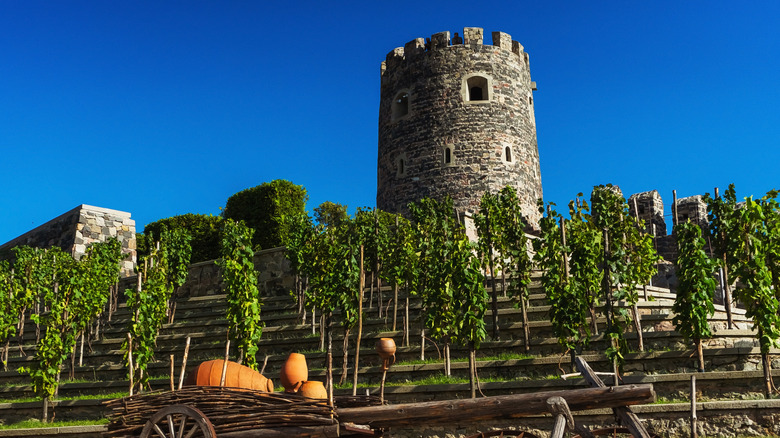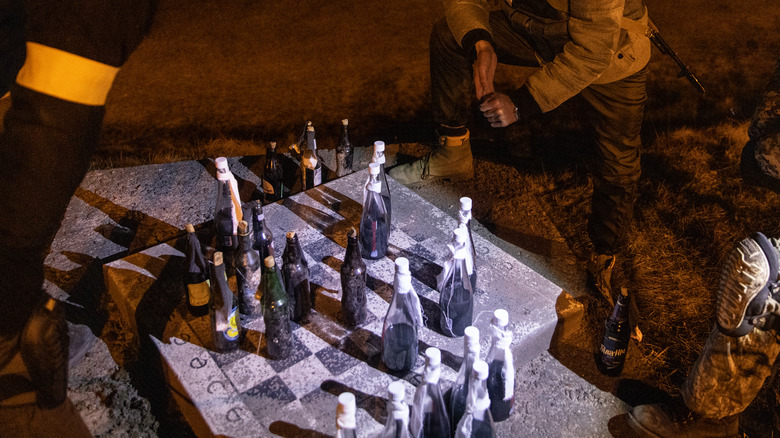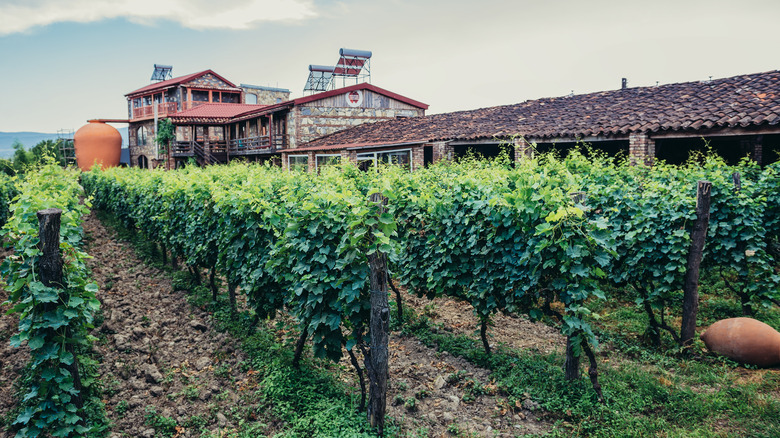How The War In Ukraine Could Affect The Wine Industry
For decades, they were known as the hidden gems of the wine world, only available to the Russian market. The end of the Soviet Union had changed that, and once the inevitable chaos that arose from political turmoil had cleared, Western wine drinkers had a whole world of labels to explore from Central and Eastern European countries like Georgia, Moldova, Ukraine, Bulgaria, Romania, and Hungary (via Financial Times). Because they weren't well known, these Merlots, Chardonnays, and Sauvignon Blancs were seen as decent wines that could be enjoyed for a very good price (via Wine Enthusiast).
But Russia's invasion of Ukraine has changed that. Weeks of fighting have not only disrupted — and possibly set back — Ukraine's winemaking abilities, but it also wreaked havoc across Eastern Europe's wine supply chain as a whole. Some facilities have stopped production in order to help refugees. Others have encountered inflation and other problems involving everything from transport to bottle supply issues, as hostilities resulted in destroyed inventory and blocked Ukraine's main port of Odesa. The country also saw empty wine bottles turned into weapons, per The Washington Post.
The wine industry's supply chain is badly hurt by fighting
It was business as usual for wineries and their suppliers in Eastern Europe until the war broke out. The founder of Georgian winery Pheasant's Tears John Wurdeman tells The Washington Post that a warehouse with about $16 million full of wine inventory was eventually bombed and destroyed. At the time, the facility was also being used to prepare and send meals to hospitals, territorial defense, and Ukraine's Armed Forces, and was likely viewed as a target.
There are also logistical problems that have arisen because of Russia's attacks on Odesa, Ukraine's largest port on the Black Sea, per Euronews. Shippers are having to worry about both the war, and inflation.
On top of this, winemakers are also dealing with a shortage of glass bottles. Swiss glass container maker Vetropack had to stop production at their facility near Kiev when the Russians invaded. When their workers were forced to flee, 300 tons of molten glass hardened inside the facility's furnace, damaging it, according to The New York Times. In other places, bottles were being repurposed so they could be used to make petrol bombs, commonly known as Molotov cocktails.
Vineyard owners on the fringes have lost income from tourism
Even if they are not on the frontlines, vineyard owners located in countries outside Ukraine, like Poland, Georgia, and Hungary, appear to be living on the fringes of the war are also enduring hardship because tourists have stopped coming for wine tours and tastings, per The Washington Post.
One wine exporter who works with vineyards says they're not asking for help. They're looking for new markets — and fresh interest — in what they have to offer. "They are not seeking charity, they simply need to continue their business in order to support their employees and surrounding communities, and refugees that are seeking shelter in safer zones," Julie Peterson, whose company distributes several Ukranian companies, said.
The fallout from Russia's war has even been felt beyond the region's wine industry. Germany's Eichbaum brewery and the country's third-largest beer exporter, has seen the price of its hops and grains skyrocket, thanks to the spike in prices that the loss of Ukrainian harvests have triggered. Uwe Aichele, who handles Eichbaum's international sales, tells The New York Times that: "The longer this goes on, the worse it will get."


